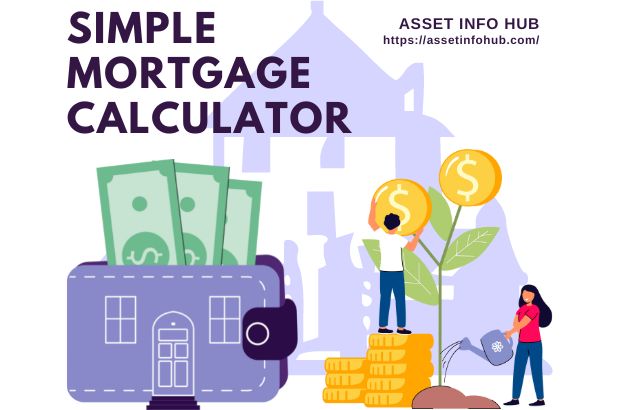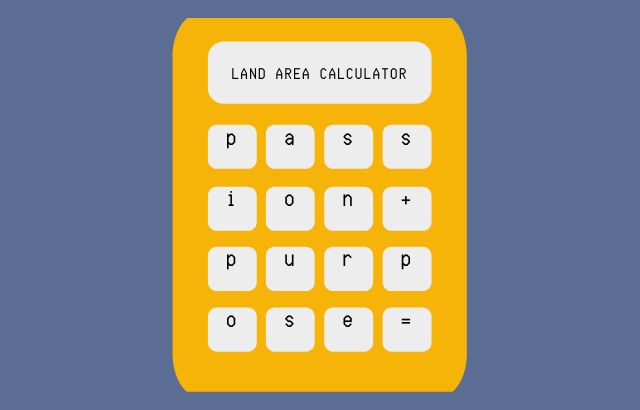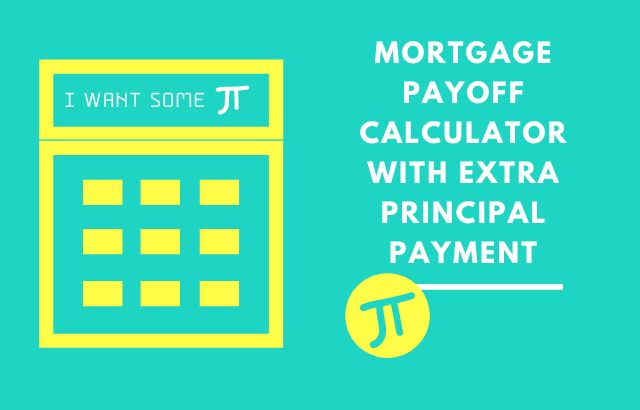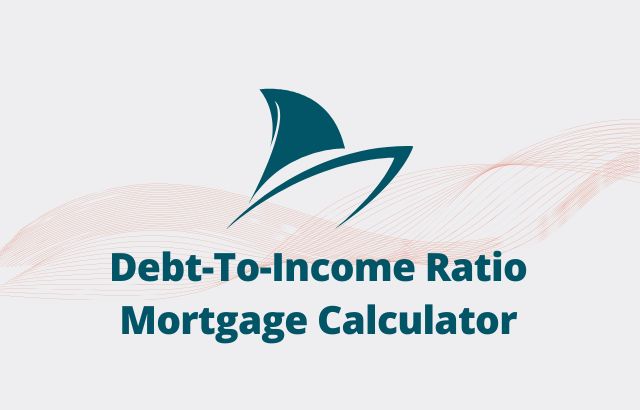House Down Payment Calculator | Monthly Mortgage Rate

The greatest challenge for most homebuyers is saving up the down payment for a mortgage. But with our house down payment calculator, you can easily find your way around this. A house down payment is the initial sum of money needed to complete the home buying process, which is often required. After a house buyer makes a down payment on a property, any excess amount will get amortized as a mortgage debt the buyer must repay. The buying price of a home should thus be equal to the sum of the mortgage loan and the down payment. A down payment for a house is often represented as a cost percentage.
Furthermore, saving for a down payment on a home may feel daunting. But don’t panic; you can narrow it down into manageable steps that will enable you to start saving for a house earlier than you had anticipated. Some lenders may take a down payment of less than 20%. However, you’ll often have to get mortgage insurance. That safeguards the lender in the event of a default. If mortgage insurance is not required, there may be additional up-front or recurring costs. Loan costs should always get understood. So, crunch the figures before you start saving. The house down payment calculator might get you closer to becoming a homeowner. Come along as we highlight this more below.
What is a Down Payment?
A down payment is a one-time portion of the price to be paid for a house. It often takes the form of a percentage of the home’s sales price and lowers the amount you’ll need to borrow. For instance, a borrower must pay at least $7,500 at closing if a mortgage lender demands a 3 percent down payment on a $250,000 house.
You may still have choices if you cannot make the down payment requested by the lender out of your funds alone. Many borrowers get their down payment money from selling their present house and through gifts or grants from family, friends, or specific homebuyer programs.
What does the House Down Payment Calculator do?
A down payment on a property is often required when purchasing one. But figuring out what you can genuinely afford might be challenging. As a result, a down payment calculator for a house serves as a tool that may assist homeowners in calculating their down payment. The purchase price, loan rate, and other monthly resident expenditures often get considered.
How to Use house down payment calculator
You can use this house down payment calculator through the following steps:
- Input the Total Cost of Asset ($)
- Enter the Down Payment (in %)
- Enter the Interest Rate (in %)
- Enter the Processing Fee (in %)
- Click on calculate, and the house down payment calculator will process your input and display the results.
- Click on reset if you need to calculate again.
House Down Payment Calculator
How is a Down Payment on a House Calculated?
The house’s sales price proportion gets used to calculate down payments. Thus, to calculate the amount you’ll need to put down, you need to increase the sales price by your goal percentage. Here are some illustrations of what the down payment may be at various pricing points:
| Price of homes | 3% down | 3.5 % down | 5% down | 12 % down | 20 % down |
| $271,000 | $8,130 | $9,485 | $13,550 | $32,520 | $54,200 |
| $339,000 | $10,170 | $11,865 | $16,950 | $40,680 | $67,800 |
| $390,200 | $11,706 | $13,657 | $19,510 | $46,824 | $78,040 |
| $519,900 | $15,597 | $18,197 | $25,995 | $62,388 | $103,98 |
Different Loans, Different Down Payment Requirements
Working with various loans and down payments involves several concerns. Here are some examples of loans with minimal requirements:

Conventional loans
Conventional loans may have different down payment requirements depending on the lender, the borrower, and the kind of property. For instance, those purchasing their first home and those with low to moderate salaries may be eligible for a private loan with a 3 percent down payment. For most people, however, the minimum begins at 5% for a principal dwelling.
The down payment is often more significant if you use a conventional loan to purchase a second home or a financial asset. Typical down payments for second houses are 10 percent, but those for investment properties might reach 25 percent.
Jumbo loan
Jumbo loans are a particular kind of private loan that doesn’t adhere to the loan amount requirements set out by Freddie Mac and Fannie Mae. Any conventional loan not supported by a government agency that exceeds $647,200 as of 2022, though higher limits apply in high-cost areas. Usually, jumbo loans need a down payment of 10% or more.
An FHA loan
The Federal Housing Administration’s FHA loan needs a minimum down payment of 3.5 percent. This is true as long as your credit score is at least 580. In other words, you’ll get the full 96.5 percent of financing the FHA covers. You may still be accepted if your credit score is between 500 and 579.
V.A. and USDA financing
The U.S. Departments of Veterans Affairs (V.A.) and Agriculture (USDA) offer1% down payment loans for qualifying homebuyers. Most members of the military services, veterans, and their families are eligible for V.A. loans. Conversely, borrowers looking to buy a property in a designated rural region may apply for USDA loans.
Large vs. Small Down Payment
Both large and small Down Payments come with diverse peculiarities. Thus, we have highlighted this in the table below.
| Large Down Payment | Small Down Payment |
| Decreased mortgage rate | Your monthly mortgage payment will increase. |
| Higher equity | You’ll have more funds available to invest in your home. |
| Lower monthly obligations | Greater monthly obligations |
| Lower closing fees | Insurance for mortgages is necessary. |
| A more appealing proposition | It enables more people to purchase homes. |
| Your financial liquidity will decrease. | An immediate lack of equity exists. |
| It’s possible that you didn’t start with enough money. | You don’t need significant savings. |
| Fewer temptations are prevalent. | The temptations keep coming. |
| The funds cannot get used for other investments. | There is more money for more investments. |
| Your investment will lose value if the house does. | Investment loss is less likely. |
Where to Get Down Payment Funds?
You can get down payment funds through the following ways:
Jumbo loans
A jumbo loan can get required if you want to take out a mortgage on a more expensive piece of real estate. This kind of mortgage often requires a larger down payment and goes beyond the Federal Housing Finance Agency’s guidelines. You will probably need to put down at least 10% of the buying price; the exact amount varies depending on the mortgage provider.
Investment revenue
Did you know that you might take an early withdrawal from certain retirement funds to afford your first home? It is a good idea to speak with your human resources department to evaluate your 401K and a bank or financial advisor to check withdrawal conditions from your index fund since every retirement plan is unique. In most circumstances, you may borrow from yourself to support your down payment or cash to close if it is your first house (i.e., you haven’t owned a home in the prior three years). Review your agreements since early withdrawals may result in tax penalties.
Refinancing with cash out
If you currently own a house, it can be worthwhile to think about using the cash from your existing remortgage to pay for a new one. A cash-out refinancing on your current home will enable you to make a better offer on a new one since it is a leveraged debt. Before applying, make sure it makes sense for your budget.
Market a house
Similarly, if you currently own a house with equity, you may sell it and use the proceeds to purchase a new one. For instance, if your present home has $150,000 in equity, you may sell it and use the proceeds as a down payment on a new one. The tricky part is that each of these possibilities depends on one property selling. Your ability to obtain the home you are under contract with will get jeopardized if the buyer cancels the transaction.
This strategy should only get used with a realtor who can carefully guide you through all the details. For a dual transaction like this to be effective, education is essential.
Offer personal belongings
As much as we like our possessions, having a home we can call our own is suitable for a roof over our heads. You may sell any toys or expensive possessions, such as a boat, motorbike, or oddity, to get money for a down payment on a house. To utilize this cash, you must preserve all supporting documents when selling the item. The funds cannot get used if you don’t have the necessary proof.
How Much Is Down Payment Required?
It’s up to you how much money you should put into a home. The key factors here are your financial situation and your chosen loan package.
For instance, making a sizable down payment and paying it all at once may lower your monthly income. The interest rate may even get reduced, and you wouldn’t have to pay PMI. Putting down more than is required to be accepted may not make sense if you want to save some money for bills or other uses. This is true even if it results in a higher interest rate and a more outstanding monthly payment.
Some institutions don’t even ask for a down payment. However, if you finance 100% of the home’s sales price and it decreases in value, you can owe more than the house is worth. This gets referred to as having an underwater mortgage or upside down. Discuss the down payment quantity you must make with your loan officer, and carefully weigh your options.
Frequently Asked Questions
What is 20% down on a $300 000 House?
The majority of lenders need 20 percent down payments. On a $300,000 property, it comes to $60,000.
How much of a down payment do you need for a $350000 house
For a property worth $350,000, a 10% down payment would amount to $35,000. The down payment is your commitment toward the purchase and symbolizes your first ownership share in the property when you apply for a mortgage to afford a property. The mortgage lender provides the remaining funds needed to purchase the property.
How much do you need for a down payment on a $300 000 house?
If you want to utilize a conventional loan to purchase a $300,000 home, you will need a down payment of $9,000, or 3 percent. A down payment of $10,500, or 3.5 percent of the appraised value, is required for FHA loans.
How much do you have to make to afford a $250000 house?
With a down payment of $12,500 (5%) and a 5 percent interest rate for 30 years, a $250,000 property needs an annual income of $65,310.
How much can I borrow with an 800-credit score?
For those with exceptional credit scores, the average mortgage loan amount is $208,977. The average vehicle loan debt of people with FICO® scores of 800 is $18,764.
How much money should I deposit on a $500,000 house?
With a $500,000 house and a $100,000 down payment (20% of the purchase price), the mortgage would be for $400,000 ($500,000 – $100,000). The average down payment in the U.S. is about 6% of the home value.
Should I put more than 20% down on the house?
Yes. Mortgage lenders often need a 20% down payment since it reduces their risk of providing money. Additionally, it is “law” that if you pay less than 20%, most schemes will charge mortgage insurance.
Is it better to put a sizeable down payment on a house?
Because they may more quickly recover their money if you fail on your loan, lenders are more willing to provide mortgages to borrowers who make a more significant down payment. They charge less when the risk is lower, which puts more cash in hand. You lower your monthly expenses by making a down payment on your house.
What credit score is suitable for buying a house?
When you apply for a traditional loan to buy a property, it gets advised that your credit score be at least 620. Lenders may not be able to accept your loan or may get forced to give you a higher interest rate, which might mean higher monthly payments if your credit score is below 620.
How much income do you need to qualify for a $200 000 mortgage?
You will need a yearly salary of around $62,000 to get accepted for a $200,000 mortgage with a minimal down payment of 3.5 percent.
How much is a monthly payment on a 700 000 house?
Your monthly repayments on a 30-year mortgage maybe $3,341.91 at a 4 percent fixed interest rate. The monthly cost for a 15-year loan might be $5,177.82.
How much house can I get for $4000 a month?
To qualify for the $4,000 per month mortgage, a home’s ultimate sales price must not exceed $905,750.00.
How much house can I afford if I make 3000 a month?
Your FHA loan’s DTI limit is $1,290 ($3,000 multiplied by 0.43) if you earn $3,000 per month ($36,000 annually). As a result, you may purchase a home for no more than $900 per month ($3,000 multiplied by 0.31).
What is the monthly payment on a 400k mortgage?
Your monthly repayments on a $400,000 mortgage with a 3 percent annual yield (APR) would be $1,686 for a 30-year loan and $2,762 for a 15-year loan.
How much per month is a 500k mortgage?
Your monthly repayments on a 30-year mortgage maybe $2,387.08 per month at a 4 percent fixed interest rate. A 15-year loan may run you $3,698.44 every month.
Expert Advice
When purchasing a house, a down payment is crucial. Even though it is sometimes the largest upfront payment during a house purchase, it is crucial to remember that a down payment constitutes only one such payment. Additional expenses may also be incurred, including the upfront points of the loan, insurance, lender’s liability insurance, inspection fees, appraisal fees, and survey fees. At this point, the house down payment calculator will aid you immensely.
References






